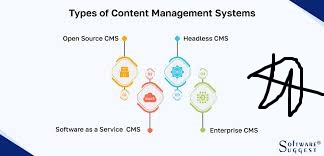Shopify is one of the most used CMS platforms for the online stores. While there is WordPress, Joomla and other CMS platforms that needs additional installation of plugins so as to create the online store, Shopify is pre-built for e-commerce and it is very easy to set up the online store.
Why Choose Shopify?
Convenient Payment Systems: Shopify supports and enables various payment processors such as PayPal, Stripe, Masterpass and Apple pay to enhance secure payment.
- Usability: The product management features provided by Shopify are easy to navigate and very straightforward. It has features such as the ability to add products, inventory management, and order tracking are all available on one platform.
- Mobility Compatible Designs: As with all the templates available, the Shopify themes are optimized for smartphone gadget and Tablet PC interfaces as well.
- In-built eCommerce tools: Basic elements ofiants compelling such as cart, vouchers, inventory controls and order management systems can be integrated in Shopify to assist in eCommerce.
- Scalability: Shopify can be used by new businesses that are just starting as well as those that are already big and established. Since the platform allows integration such as with variants and a vast collection of apps, you can add more functionality to the store as your operations grow.
Shopify is the ready-made solution for the businesses who plan to create an online store and start selling their products online. This is easy to use, maintain high levels of security, and is catered for internet selling. However, Shopify has monthly costs which can be reasonable due to many functionalities included in the platform suitable for SMBs in e-commerce.
Key Features of a Good CMS
When it is the question of implementing a CMS for a Web site construction, it is crucial to compare its basic characteristics. Any CMS has to meet these requirements and should be easy in terms of working, setting up and managing contents and should have the requisites of flexibility, security and being user-friendly. Here are some of the features which such CMS should possess to ensure that it would suffice the needs of users based on the type of website and the industry being run.
1. Customization & Flexibility
It should be capable of handling and configuring in a high degree dependent on websites requirements in variety of designs based on its user’s preferences. This makes it possible for the website to be dynamic that is with time it is subjected to expansion as the business progresses or in case of certain changes. There are several factors that result in customization, these are;
Themes and Templates:
A CMS channel should provide a lot of themes and templates that decide about the look and arrangement of a website. Both options let users select the look of the site and change it in case if it is needed. Some of the CMS platforms are available for free but have paid themes; others give users full freedom to design their sites. It is very important to be able to defined the themes natively with built-in editor or from code (CSS, HTML).

Custom Plugins and Extensions:
Subsequently, a good CMS should have the capability of apps and modules, which are enhancements that one instals on his/her website to enhance its performance. Such features may include the capability of e-commerce, forms of contact, social media integration, SEO features, and many more. Consumers should be able to add new features to their website without to start with programming. For instance, wordpress hosting has a great repository of plugins where the user can install a variety of features for his site such as adding contact form, gallery or advanced SEO functionalities. Further, it is also possible to develop own plugins to serve more specific requirements.
Drag-and-Drop Functionality:
To enhance flexibility, which is important in the development of a CMS for websites, the editor should come equipped with the features that enable the users to add pages and structures on the site through dragging features without coding. This feature is beneficial for both the technical and non technical users in a manner of developing best sites. Page builders also include tools such as Elementor and WPBakry, which makes the work comfortable for the users: they have the opportunity to just pull the button, images, text, buttons and others and drag them at any part of the page. A highly customizable CMS offers to the user the largest amount of opportunities for creating the website that would be liked, but still containing all the tools for constructing something extraordinary.
